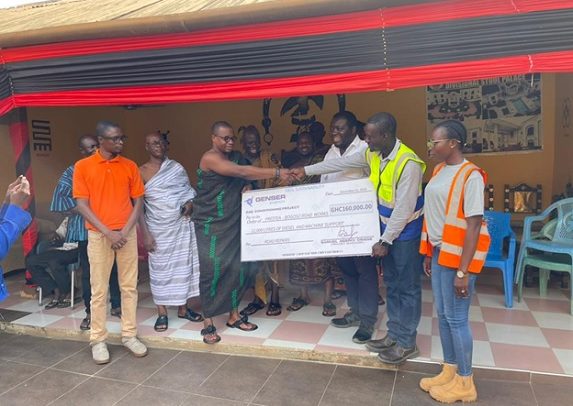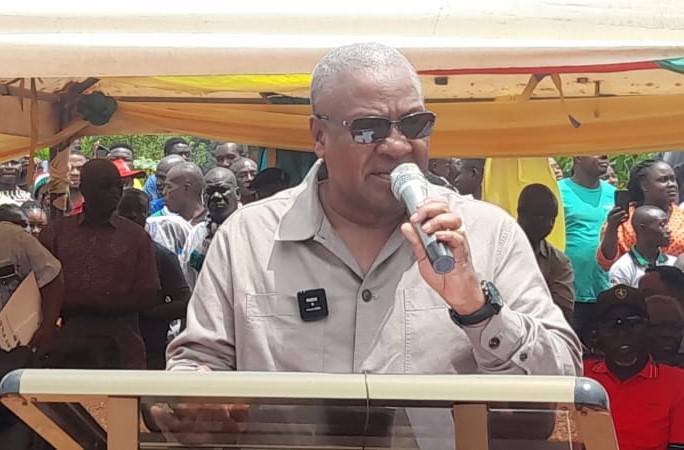
A Ghanaian academic and researcher based in the UK has challenged stakeholders to explore new approaches in the development of infrastructure which do not increase the overall debt stock.
Dr. Joseph K Ofori-Kuragu, an expert on Public Private Partnerships (PPPs), made the call during a PPP Expert Panel and Roundtable event organised in Accra. The event brought together some of the leading procurement experts in Ghana, industry professionals, policymakers, contractors, academics and researchers to explore the underlying issues and propose solutions.
The event was organised by Project Excellence Ghana, a Ghanaian consulting firm, with support from UK-based consultants Innovation Inc. and Anglia Ruskin University, UK. It was chaired by Surveyor Humprey Amegadoe, an Accra-based Quantity Surveying Consultant.
The event was aimed at proposing innovative strategies to increase the number of PPP projects that reach financial close by exploring constraints to implementating PPP projects in Ghana.
It was hoped that, through the forum, innovative solutions will be identified to enable increased adoption of PPPs in meeting the huge infrastructure deficit. The event was organised against a backdrop of significant challenges faced by successive governments in developing critical infrastructure and the delivery of essential public services.
Exploring the event’s background, Dr. Ofori-Kuragu asserted that given the constraints of limited budget resources and a huge infrastructure gap, addressing Ghana’s infrastructure deficit cannot be met by the public sector alone through periodic budgetary allocations.
Citing Ghana’s Ministry of Finance estimates that addressing Ghana‘s infrastructure deficit could require sustained spending of at least US$1.5billion per annum over at least 10 years, innovation is needed to meet the infrastructure deficit. He went on to say that despite government intentions and programmes by the Ministry of Finance – backed by the establishment of Public Investment Units (PIUs) in all ministries, very few successful PPP projects have taken-off.
Said Dr. Ofori-Kuragu: “Given the huge infrastructure gap and opportunities that developing new infrastructure can present for overall national development, innovation is needed to ensure greater interest among the private sector to participate in PPP schemes”. This, he said, will address the challenges that inhibit successful implementation of PPPs and enable them to become a major source of financing critical public infrastructure.
Giving the keynote address, lawyer David Ofosu-Dorte acknowledged lack of political will as a major constraint to successfully implementing PPPs in Ghana. He recommended that governments should start PPP projects early in their tenure to give the best chance of completing them on time.
Also speaking at the event, Mrs. Cynthia Ayebo Arthur, Acting Director-Public Investment and Asset Division (PIAD), Ministry of Finance, highlighted the key activities of her division to support the development and implementation of PPP projects. She asserted that the government of Ghana is encouraging the use of Public-Private Partnerships (PPP) as a means of leveraging public resources with private sector resources and expertise to close the infrastructure gap and deliver efficient public infrastructure.
She identified inadequate levels of capacity among stakeholders, from both the public and private sectors, as a key challenge to successful implementation of PPPs. While her outfit has been involved with building capacity in Public Investment Units (PIUs) within Ministries, Departments and Agencies (MDAs)/Metropolitan, Municipal and District Assembles (MMDAs), she called for an intensification of capacity-building initiatives to cover all stakeholders in the PPP chain.
Magdalena Leisten Jahonssom – Infrastructure and Climate Finance Adviser at the British High Commission, Accra – identified the high risks associated with infrastructure as a major challenge and suggested robust risk management systems to mitigate the many risks associated with developing infrastructure in developing countries. Her outfit, she said, is ready to support efforts at developing the use of PPPs in providing sustainable infrastructure.
Participants agreed that there are significant available resources and financing globally for supporting PPP projects – and that with the appropriate supporting framework, PPPs could become a major source for developing infrastructure in Ghana. It was therefore suggested that governments increase the use PPPs in developing national infrastructure.
This would ensure that developing new infrastructure does not significantly add to national debt. It was also suggested that local and international market-sounding events, including roadshows, be organised to showcase Ghana’s investment opportunities in PPPs and overall readiness to increase their deployment as a major source of infrastructure development.
In his remarks, Surv. Amegadoe – who chaired the event – emphasised how important the opportunities that PPPs provide are for developing infrastructure. He challenged stakeholders to work collaboratively on ensuring PPPs become an important vehicle for developing critical national infrastructure in Ghana.
The event convener, Dr. Ofori-Kuragu – from Anglia Ruskin University, UK and a Director of UK-based Innovation Inc. – on behalf of the organisers promised that necessary follow-up actions will be undertaken to ensure attainment of all recommendations made by the panel.
As part of this, he announced that an awareness and capacity-building programme will be held for leaders with responsibility for decision-making at the local and national levels concerning PPP projects: such as MPs, PPP Committee members, representatives from Office of Regional Coordinating Councils, General Assemblies of District Assemblies and Contracting Authorities (MDAs and MM
The post New and innovative approaches to infrastructure development needed- Dr. Ofori-Kuragu appeared first on The Business & Financial Times.
Read Full Story























Facebook
Twitter
Pinterest
Instagram
Google+
YouTube
LinkedIn
RSS